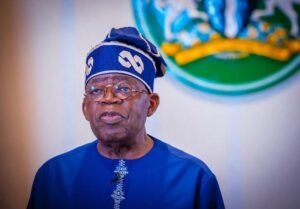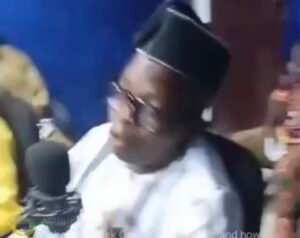MUSWEN Renews Call for Expanded Shariah Jurisdiction

The Muslim Ummah of South West Nigeria (MUSWEN) has reiterated its demand for the expansion of the jurisdiction of the Sharia Court of Appeal, stating that Nigerian Muslims have been persistently denied full religious rights under the current constitutional framework.
This demand was made on Saturday, July 19, 2025, during the House of Representatives Committee on the Review of the Constitution, South West Centre A Public Hearing, held in Lagos.
MUSWEN submitted a comprehensive memorandum proposing several amendments, echoing similar demands made earlier at the Senate Public Hearing on constitutional review in Lagos.
According to MUSWEN, “under Sections 262 (1 & 2) and 277 (1 & 2), the jurisdiction of the Sharia Court of Appeal is currently limited to Islamic personal law.
This restriction represents a serious form of discrimination and a violation of the principle of equal access to justice for three main reasons.”
The group contended that, “The Sharia Court of Appeal is not a court of first instance; it only hears appeals. Yet, its jurisdiction is narrower than the lower courts from which appeals originate. This has resulted in Islamic civil matters being tried on appeal by judges of the High Court, Court of Appeal, or Supreme Court—many of whom may not be Muslims or may lack adequate understanding of Islamic law.”
MUSWEN highlighted the imbalance in comparison to the Customary Court of Appeal, which is not limited to personal law under Sections 267 and 282(1). “This imbalance is unjustifiable and denies Muslim litigants equal rights within the legal framework,” it stated.
The group further criticized the current system in which “Islamic civil matters (outside personal law) are often decided by British-style courts,” describing it as inappropriate given the distinct foundations and philosophies of Islamic and Western legal systems.
Citing the case of Abdulsalam v. Salawu (2002) 13 NWLR (Pt. 705) 505, MUSWEN pointed out how the Court of Appeal and Supreme Court ruled that the Sharia Court of Appeal lacked jurisdiction in the appointment of a Chief Imam, which it said underscores the need for constitutional reform.
MUSWEN proposed that the word “personal” be removed from Sections 262(1 & 2) and 277(1 & 2) to broaden the jurisdiction of the Sharia Court of Appeal.
It also recommended amending Section 272(1) to strip the High Court of jurisdiction over Islamic civil matters, suggesting it be revised to read:
“Subject to the provisions of Sections 251, 262, and 277, and other relevant provisions of this Constitution…”
On broader constitutional matters, MUSWEN supported the devolution of powers by amending the Exclusive Legislative List and moving more items like natural resources, taxation, and local infrastructure to the Concurrent List. It also recommended recognition of the six geopolitical zones as federating units with authority to operate regional constitutions, similar to the 1963 arrangement.
Regarding fiscal federalism, MUSWEN advocated a return to the revenue-sharing formula in Section 140 of the 1963 Constitution:
50% of royalties and rents to the producing region
30% to the distributable pool
20% to the federal government
States and regions, it argued, should manage their resources and remit agreed royalties to the federal government.
MUSWEN also called for full local government autonomy, recommending amendments to Section 7 to ensure direct funding from the Consolidated Revenue Account and to define the powers of LGAs clearly. It further suggested that states should hand off control of primary education to LGAs.
In terms of legislative structure, the group proposed a bicameral system with reduced membership. It recommended making the Senate an advisory body composed of non-political stakeholders, and having the House of Representatives consist of part-time members with 12 representatives per geopolitical zone.
On electoral reforms, MUSWEN supported House Bill 1589, which involves the National Judicial Council in appointing the INEC Chairman. It proposed that regional electoral commissions conduct local government elections simultaneously with general elections, supported House Bill 1154 to ensure election petitions are resolved before swearing in elected officials, and advocated extending the tenure of LG officials to four years.
Additionally, MUSWEN called for constitutional protection of Muslim women’s rights to wear the hijab, suggesting an expansion or clarification of Section 42 to explicitly prohibit discrimination based on religious attire in schools and workplaces.
In his opening remarks, the Chairman of the Committee, Rt. Hon. Isiaka Ibrahim Ayokunle, who is also the House Deputy Chief Whip, explained the constitutional review procedure.
He noted that after the public hearings and first reading of bills, a two-thirds majority of the Chamber must agree on recommendations, followed by harmonization by the Conference Committee and input from State Houses of Assembly before final passage into law.
Hon. Ayokunle assured that all memoranda would be considered, pledging transparency in the process.
Centre A of the Public Hearing comprises Lagos, Ogun, and Oyo States. Present at the session were Deputy Committee Chairman Hon. Jide Benson, Hon. Kafilah Ogbara, Hon. Seni Adio, former Ogun State Governor Senator Gbenga Daniel, former Lagos Deputy Governor Prince Biodun Ogunleye, former Ogun Deputy Governor Gbenga Kaka, ex-Minister of Works Adeseye Ogunlewe, traditional rulers, and other stakeholders.
Various trade unions, NGOs, youth groups, women’s organisations, and religious bodies submitted memoranda during the session.









